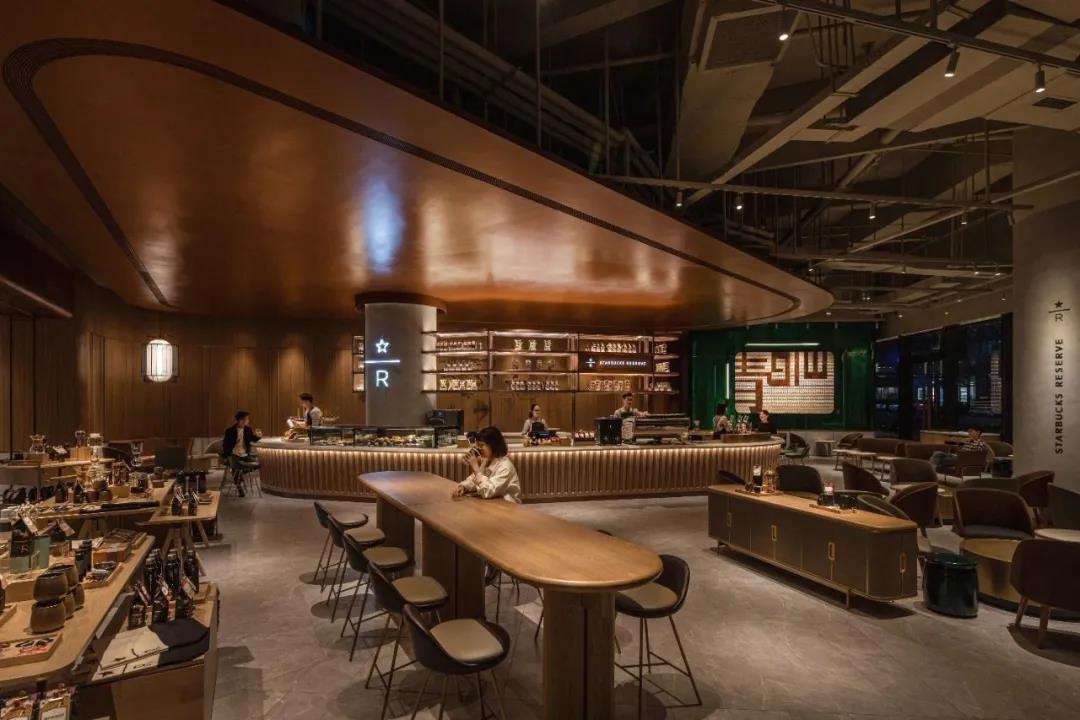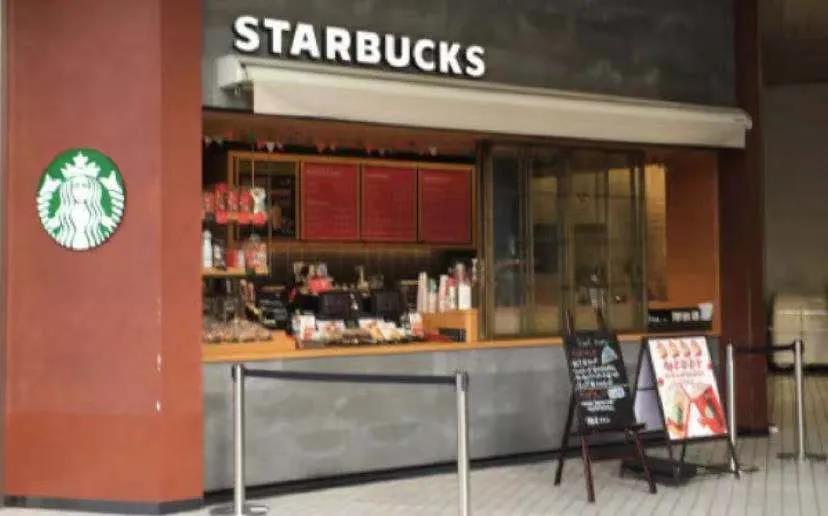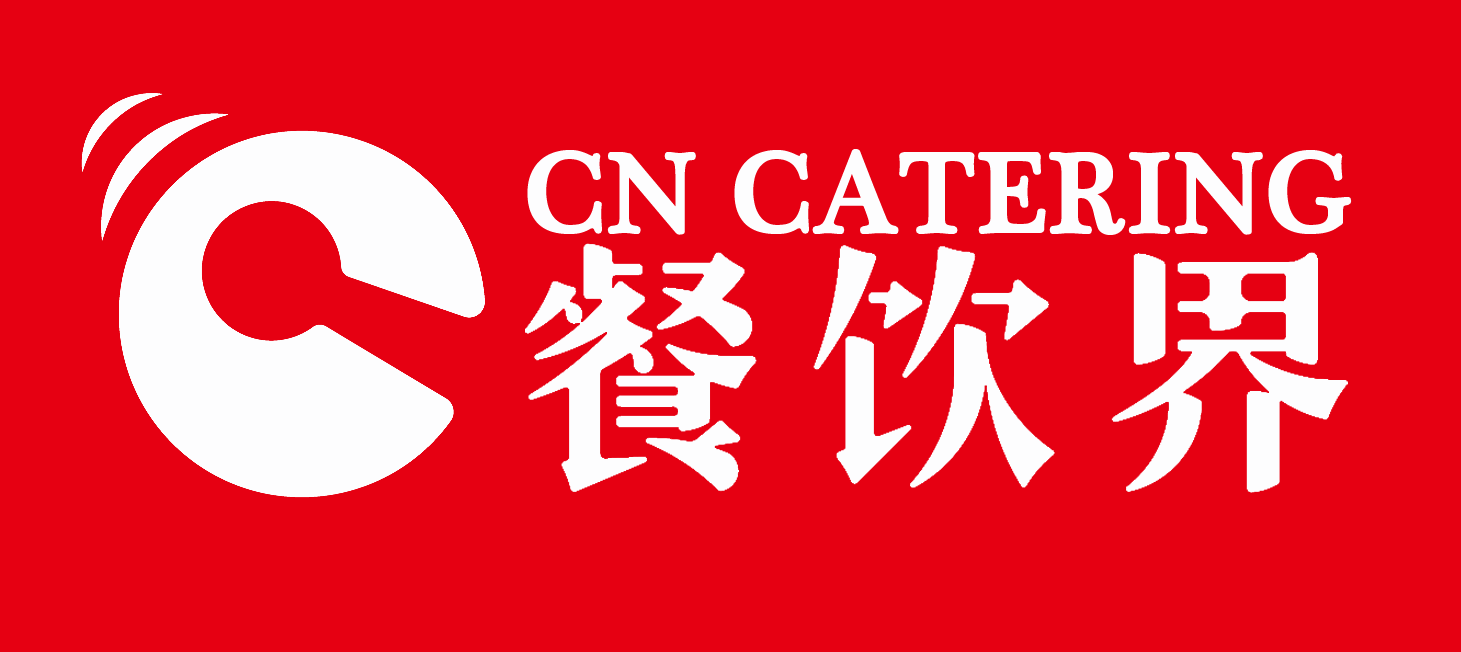The number of stores broke through 5000, and one store manager was promoted within 15 hours! How doeToday's headlines

At the end of April, Starbucks opened its 5,000th store in mainland China. For this huge store system, I am most curious about the "people" problem.
It has nearly 60,000 current employees, adds 10,000 new job opportunities every year, and promotes an average store manager every 15 hours; it has also stepped out of countless independent cafe owners, regional directors, brand founders, and executives.
What can be learned from Starbucks' talent training and management?
ONE
Promote a store manager every 15 hours
How many drink owners are "from Starbucks"
At the end of April, Starbucks Premier Qingdao Vientiane City store officially opened. A major feature of this Starbucks is the ability to drink craft beer that reflects the characteristics of Qingdao's "Beer Capital".
This is the first Starbucks Premium Store in Shandong Province and the 5,000th Starbucks store in the Chinese mainland market.

Starbucks has established the largest coffee shop system in China for 22 years after entering China, covering 200 cities. China is also Starbucks' fastest growing and largest overseas market in the world.
China is Starbucks' fastest growing overseas market in the world
Such a large store scale must rely on "people" to support it.
It is understood that Starbucks China currently has nearly 60,000 employees, and an additional 10,000 new job opportunities are added every year, and a new store manager is promoted every 15 hours on average.
If you count all the baristas who have worked at Starbucks in China, it is definitely a more "terrifying" number.
In the beverage industry, I meet "people from Starbucks" almost every day. Some of them have opened their own coffee shops and established their own tea brands, and some have become senior R&D and regional management.
The beverage store recruits the manager and management. If you hear that the interviewer has "Starbucks work experience", you will be brightened up and have great expectations.
How does Starbucks nurture people? What did those "people who came out of Starbucks" gain? I interviewed almost all drinkers with Starbucks work experience that I can contact.
Store SOP awareness "engraved in the mind"
Many friends who have worked at Starbucks mentioned the "devil details" of Starbucks.
For example, Siwei, the founder of o.p.s., was also a Starbucks partner. o.p.s. became popular in the magic city because of their unbelievable drink ideas.
But no matter how complex the formula of creative coffee is, the o.p.s. can also have stable quality. Siwei values store SOP very much. In her opinion, this is because Starbucks' strict process and hygiene requirements have been engraved in her mind.
In the interview, Starbucks had the deepest influence on them, generally in 3 aspects:
1. Obsessive-compulsive disorder level cleaning, every process is related to food safety
"People who have worked at Starbucks have clean obsessive-compulsive disorder." said a friend who once worked at Starbucks and is now a senior tea researcher.
For example, Starbucks washing cups must go through at least three steps of rinsing, cleaning, and disinfecting, and then put them in the dishwasher for cleaning.
Various containers, stirring rods, cream guns, water tanks, and ice tanks of different materials have different cleaning standards.
It's complicated, but every cleaning process is related to food safety. This is a barrier for 5,000 stores to prevent food safety risks.
2. Not afraid to learn, the operation details are explained in pictures and texts
Take the new product as an example, all materials, expiry dates, and operating ratios will have an electronic "manual" every time. There are very detailed pictures showing where the rags are placed and how the pastry cabinets are arranged.
So even if the details are complicated, the store partners can also master it.
3. SOP is not just a recipe, but all the details that can be standardized
At Starbucks, it seems that every movement and detail can be standardized.
For example, Starbucks milk tanks use inner scale lines. Because of the influence of the cup wall, there may be errors in measuring with outer scale lines. Another example is that the person in charge on duty must go to the outside field once in a period of time.
During the interview, I found that Starbucks employees have a strong sense of SOP for opening stores, including all personnel arrangements, cleaning management, order quantity, expiration management, food safety standards, and even store design, material materials, and so on.
For example, Shen Wei, the founder of Marmalade in Shanghai, has now opened 3 stores. He has not only worked at Starbucks, but also won the Starbucks National Latte Championship. "The design of the movement of the bar in the store, the placement of utensils, and even the label management of raw materials always have the shadow of Starbucks. Starbucks is the'steel seal' in the hearts of a generation."
——"The rules and procedures are the most important for small cafes, because it determines the lower limit of your production." Siwei said.
TWO
Achieve a talent system
We must first achieve each "individual"
The founder of Zhu Ye, Liu Fang, once worked at Starbucks. What she was impressed with was that Starbucks "continuously inspires the enthusiasm of partners for learning" and takes the initiative to improve herself.

I found that Starbucks has various ways to "urging" you to learn.
For example, an interview will start with a cup of coffee and popularize coffee knowledge from the first meeting.
A newcomer must undergo at least 30 days of rigorous training to become an independent barista, put on a "green apron" and stand on the bar. Wearing a "green apron", I naturally want to upgrade to a "black apron" as soon as possible.
A small change in identity is a driving force for growth.
In order to facilitate everyone's learning, Starbucks has a magical online tool: "Starbucks University of China (SCU)".
It is a Starbucks internal learning platform. It is not an exaggeration to call it "University". Now there are 560 courses in it, with more than 80,000 monthly visits.
Many brands are building their own "corporate universities". How are the courses of "Starbucks China University" set up?
The course includes 3 major topics:
Retail, leadership, coffee, suitable for partners at different stages.
All courses are closely related to daily life, online learning can be used immediately, and the practicality is strong and the willingness to learn is high.
New partners, new managers, and new management have special courses to help them adapt and integrate into their new roles.
Specially to create an atmosphere of "learning community", partners can share and exchange knowledge through the Luwei Group App.
Launched the "Starlight Project" to cultivate potential partners.
Since 2011, nearly 500 partners have participated in the project, of which more than 150 partners have been promoted from the Starlight Project to regional managers and above.
Holding internal competitions is also a way to promote business learning, and many beverage companies can refer to it.
For example, the annual "Starbucks China Star Barista Competition" started in 2009 and is the stage for the national Starbucks barista competition. There are also experiential training "Journey of Origin", as well as seven different special training exams including latte art and classic hand punch, and so on.
Starbucks’s system of “urging” people to learn is not so much a “training” as it is a comprehensive improvement of a person’s professional quality and an emphasis on the growth of the person himself.
This approach is also affecting more brands. For example, boiled leaves also has a similar project to help employees learn tea culture and become "little experts" in a field.
——To achieve a strong talent system, first of all, to achieve an independent individual.
THREE
From hidden benefits and "family culture"
Learn how to be a manager
From the founding of Zhuye to today, Liu Fang has been adhering to a principle of "staying on the front line".
She came to the store at least one or two days a week, chatted with employees and customers, communicated with store managers, and even spent a lot of time watching customer reactions and responses on Dianping.
This is a habit brought to her by Starbucks. "Starbucks has always emphasized people-oriented, equal trust, respect for customers, and care for the society." She said that precisely because of this, colleagues are indeed like family members, with deep feelings, mutual trust and high loyalty.
Starbucks' humanistic care is not only a corporate culture, but also a part of its talent system construction.
During the interview, I also discovered that Starbucks has developed a more local corporate culture in China: "Family Culture."
They have built their stores into "small homes", emphasizing equal trust in their daily interactions, and leaving partners are no exception. Caring for employees with a culture that is closer to the local area, and more cohesive force.
According to a recent partner satisfaction survey conducted by Starbucks China, more than 80% of the store employees agreed with the two scores of feeling the caring support of line managers and the cohesive team atmosphere.
Moreover, Starbucks' emphasis on "family culture" not only stays in the store partners, but also extends to the partners' family members.
Starbucks has a parental care program: since June 2017, it has successively provided critical illness insurance to nearly 32,000 eligible parents of partners.
In addition, there are many Starbucks "hidden benefits" circulating in the arena, many of which are based on the heart:
For example, the Star Fund: established in 2010 to provide emergency financial assistance to partners in need
There are also "exclusive" star benefits: starting from January 2020, partners can redeem various benefits through points, including appointments for HPV vaccine injections, pet care, and special understanding of this generation of young people.
And a variety of caring "workers": provide housing allowances for star baristas and on-duty supervisors, the project benefited 26,000 partners.
A "Partner Home Plan" was also formulated to give partners the opportunity to return to work in a new store in their home city or nearby cities.
Strict systems and standardized processes are certainly important, but these humane cares are like an adjustment in the rules, making big companies less cold.
Summary
There was once a best-selling book called "Haidilao You Can't Learn".
There are also many people who say that Starbucks' humanistic care, various welfare policies, and talent training cannot be referenced by ordinary stores.
But in fact, those "people who came out of Starbucks" have already subtly brought the pursuit of standardization and the emphasis on humanistic spirit to their own brands and stores, and to many seemingly ordinary positions.
Perhaps this is the biggest contribution Starbucks has made to the beverage industry in the 22 years since it entered China.
免责声明:1.餐饮界遵循行业规范,转载的稿件都会明确标注作者和来源;2.餐饮界的原创文章,请转载时务必注明文章作者和"来源:餐饮界www.canyinj.com",不尊重原创的行为餐饮界或将追究责任;3.投稿请加小编微信toutiaoxiansheng或QQ1499596415。4.餐饮界提供的资料部分来源网络,仅供用户免费查阅,但我们无法确保信息的完整性、即时性和有效性,若网站在使用过程中产生的侵权、延误、不准确、错误和遗漏等问题,请及时联系处理,我们不承担任何责任。
 扫码关注餐饮界微信号
扫码关注餐饮界微信号
- Feelings Dining Ceiling Why ca
- Can 2021 become a transition y
- Měi gè cāntīng fúwùyuán, dōu s
- If the restaurant wants to kee
- Cha Yan Yue Se still embarked
- Michelle Ice City, the "B
- Haidilao has plummeted by near
- The more smelly the hotter, se
- The number of stores broke thr
- Haidilao, which removes beef c


 Media
Media


